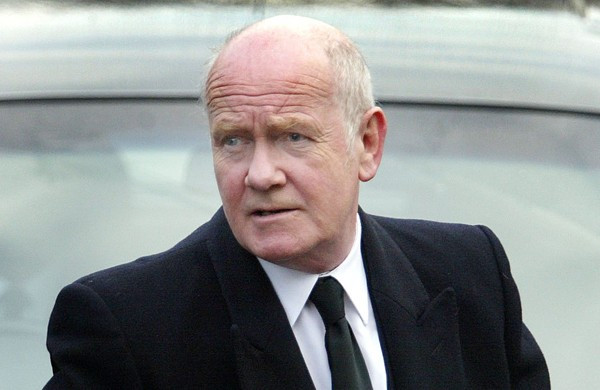Woolwich Terror Attack: Call for Snooper Charter Resurrection 'Wholly Wrong' Says Privacy Watchdog
Calls for the government's controversial Communications Data Bill to be reassessed in the wake of the murder of a soldier in London have been branded "wholly wrong" by privacy campaigners.

Hours after a serving soldier was believed to have been beheaded in Woolwich, southeast London, Labour peer Lord Reid and former independent reviewer of terror laws Lord Carlisle appeared on the BBC's Newsnight calling for deputy prime minister Nick Clegg and his Liberal Democrat party to drop their opposition to the proposed legislation.
Dubbed the Snooper's Charter, the bill would give police more power to track suspects' use of email, instant messaging services like WhatsApp and VOIP services like Skype, but was killed off last month when the Lib Dems leader said it went too far and was thrown out. While the Bill was not officially mentioned in the Queen's Speech, it was suggested the government was planning on implementing at least some of the proposals the Bill called for.
Privacy watchdog Big Brother Watch said it was "wholly wrong for [Lord Reid and Lord Carlise] to be arguing for a change of policy before the details of what has happened in Woolwich are clear."
Speaking to Newsnight, Lord Reid said: "We have to learn proportionate lessons from what has occurred. We mustn't rush to judgement. But we must ensure that the police and the security services have for the future the tools they need which will enable them to prevent this kind of attack taking place.
"I hope that this will give the government pause for thought about their abandonment for example of the communications data bill and possibly pause for thought about converting control orders into what are now called TPIMs [terrorism prevention and investigation measures], with a diluted set of powers."
Also appearing on Newsnight, Lord Carlise agreed with Lord Reid saying:
"We must ensure that the police and the security services have for the future the tools they need which will enable them to prevent this kind of attack taking place. I hope that this will give the government pause for thought about their abandonment for example of the Communications Data Bill and possibly pause for thought about converting control orders into what are now called Tpims, with a diluted set of powers."
Simply wrong
Big Brother Watch director Nick Pickles tweeted: "Simply wrong for Reid and Carlisle to be calling for policy when so few details are known and grieving has barely begun."
Simply wrong for Reid and Carlisle to be calling for policy when so few details are known and grieving has barely begun. #woolwich
— Nick Pickles (@nickpickles) May 22, 2013
Pickles told IBTines UK: "As the Prime Minister has said, we should guard against knee-jerk responses. Jack Straw is right to highlight that before rushing to propose legislation, it is right to ask whether it would have made a difference in preventing this sickening attack.
"However, those judgements cannot be made quickly and those like Lord Reid should have the decency to allow the police and security service investigations to conclude before rushing to make the same political points the public rejected when he was Home Secretary."
Speaking to Huffington Post UK, former Home Secretary Jack Straw said the attack "raises the issue about increased communication data. We do not know at this stage that the absence of these powers was a factor in their being at large. I hope the Intelligence and Security Committee will look at it."
Straw added: "No doubt some people describing it as a Snooper's Charter will be saying 'why didn't the security services pick them up'."
The Blackburn MP also told Radio 4's World at One that an investigation into whether the Communications Bill would have prevented the Woolwich attack should take place.
Under current law, the police can monitor phone calls and text messages, and are able to obtain the time and place of the call or message, along with the user's name, but the same cannot be said for communications over the internet.
Online messages
Because of how the internet works, it is currently difficult to identify users in the same way; IP addresses are often assigned to multiple people at once, making it difficult to determine where or when an email, instant message or Skype call took place.
The Communications Data Bill sought to address this, by giving police access to this information for online messages and Skype calls, along with the power for police to monitor websites visited by a suspect.
But being granted access to this information might not be enough, as IP addresses can be manipulated or disguised to prevent a suspect's communications from being monitored.
A solution would be to change the system of assigning permanent IP addresses to users' devices, but this would require fundamental changes to how the internet works and international agreement.
© Copyright IBTimes 2025. All rights reserved.






















